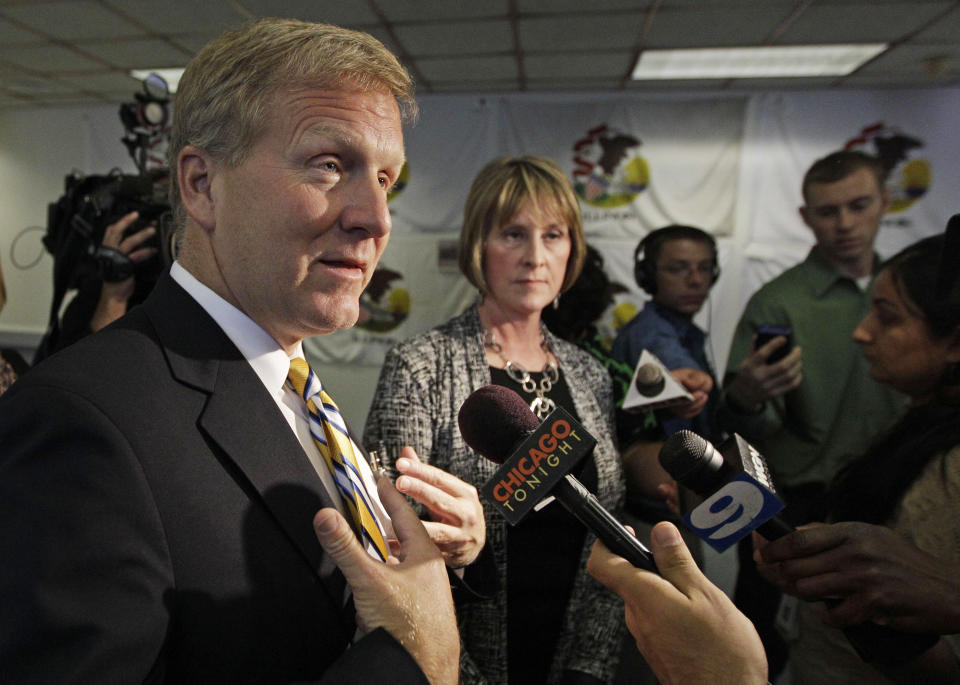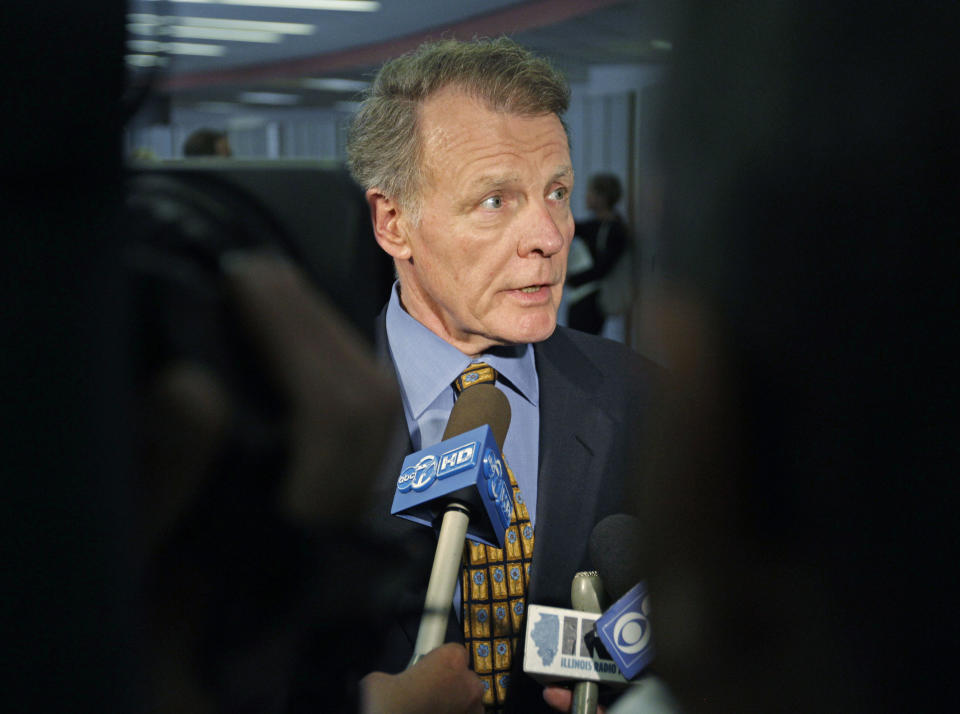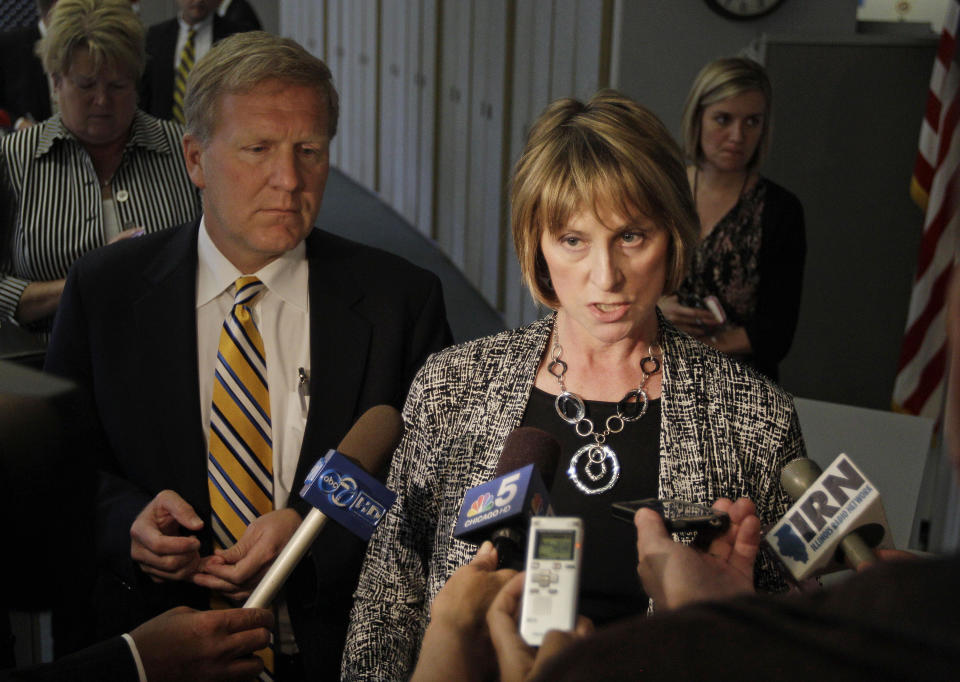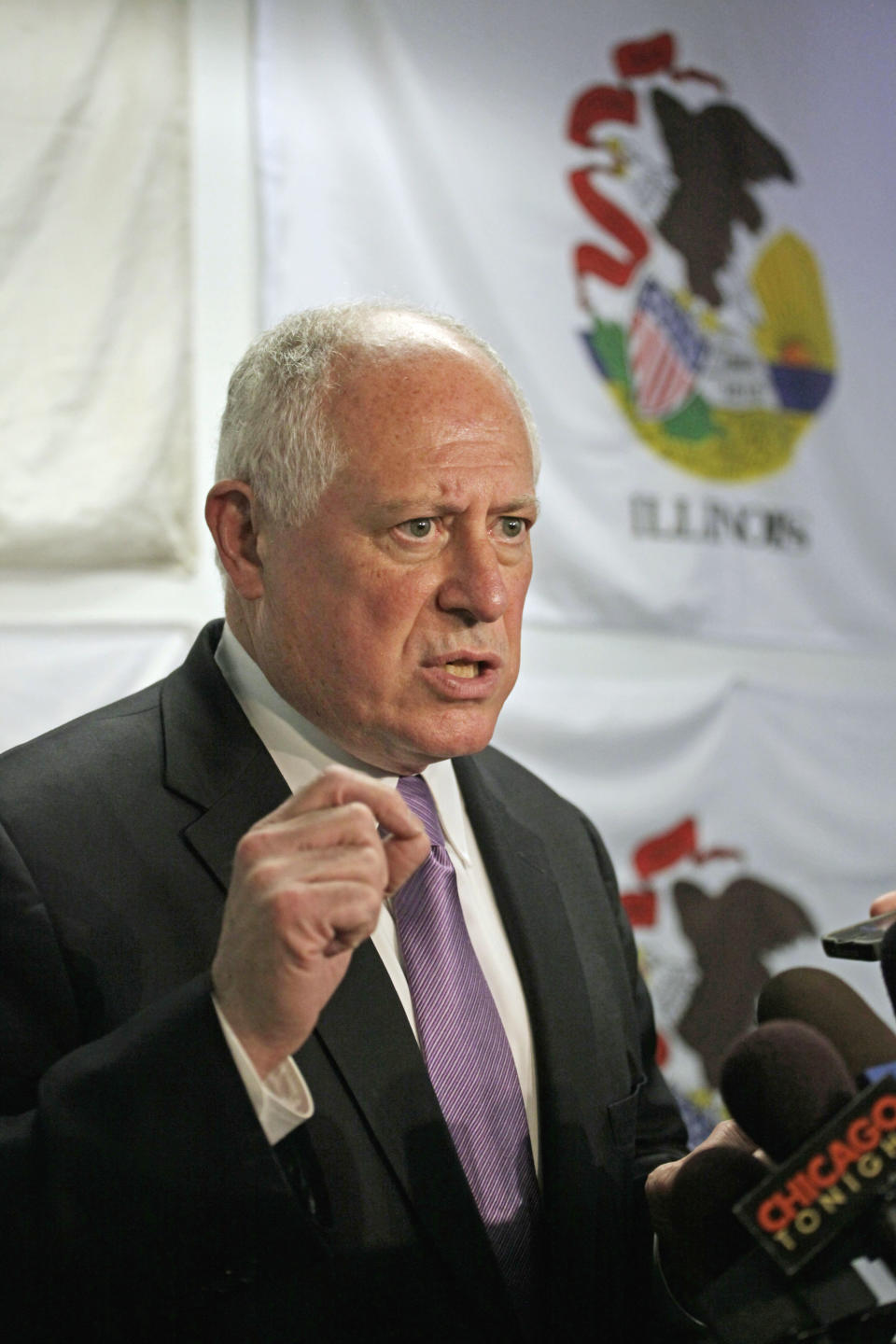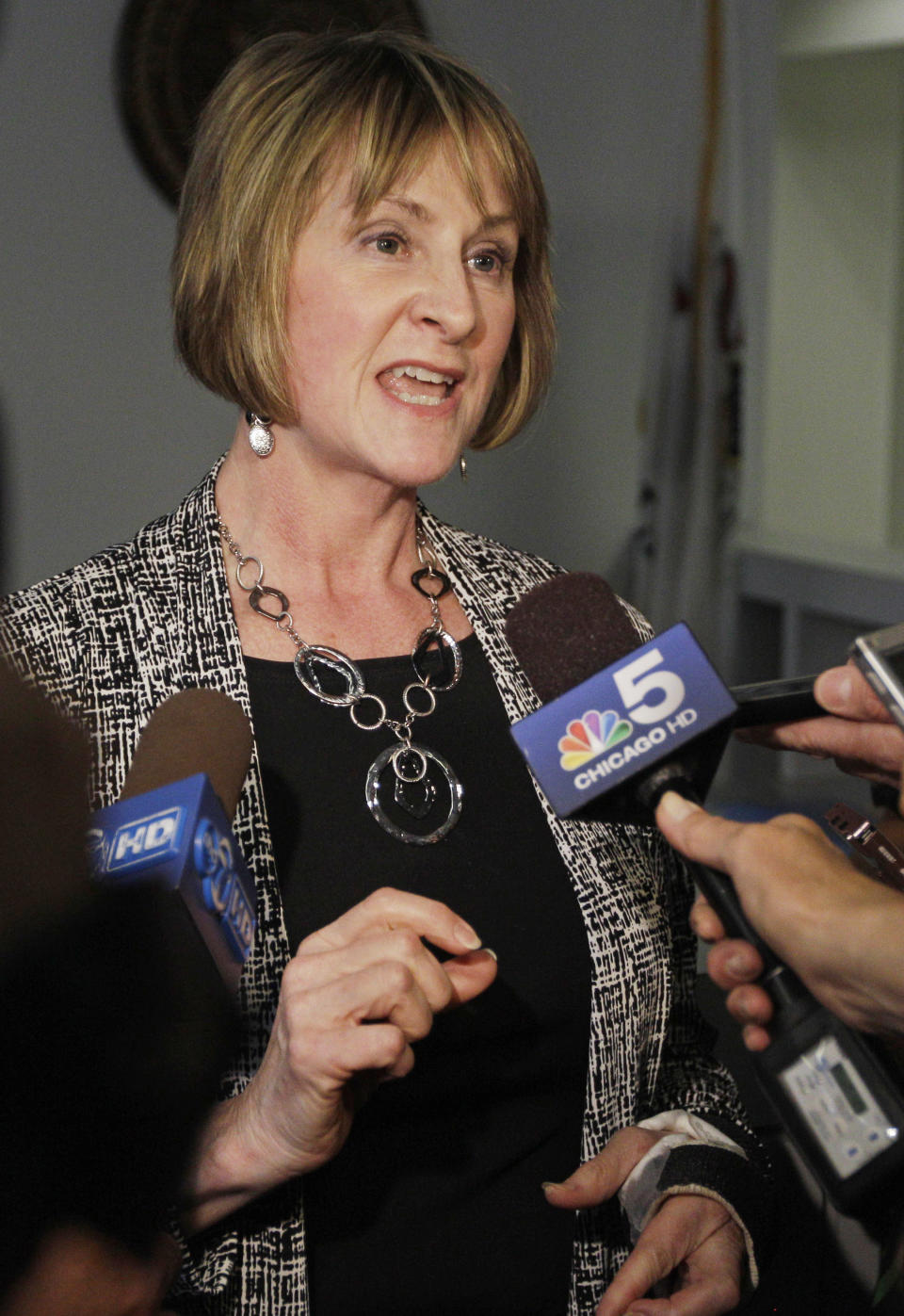Ill. officials disagree on pension reform approach
CHICAGO (AP) — Illinois officials emerged from a closed-door meeting Wednesday divided over the next steps in solving the state's most pressing financial issue: somehow closing an $83 billion funding gap for its retirement systems.
The top Democrat and Republican in the Senate and the House Republican leader argued for quickly adopting a proposal that has the widest support before continuing to negotiate. But Gov. Pat Quinn and House Speaker Michael Madigan are insisting on a more comprehensive solution that would include a transfer of pension costs to school districts, a proposal that scuttled negotiations last week.
Legislative leaders, taking up the issue after talks collapsed in the final days of the spring legislative session, are under pressure to act soon as bond-rating agencies have made it clear they will downgrade the state's already-low credit rating unless Illinois finds a way to reduce the strain state pensions put on the budget.
At the heart of lawmakers' dispute is whether to make suburban Chicago and downstate schools pay for their own employees' retirement costs, which the state currently pays. Republicans and some Democrats fear that would lead to property tax increases, but Madigan and Quinn say the change is necessary to fix the pension system long term.
"We have to eliminate the free lunch for local school districts," Madigan, a Chicago Democrat, told reporters after the meeting. "That's how we should move forward. If you wish to provide for reform of the pension systems, if you want to have responsibility in developing pensions, then you have to provide that the people who spend the money actually pay the bill."
Senate President John Cullerton, Senate Minority Leader Christine Radogno and House Minority Leader Tom Cross want to put aside the question of who pays the employer share for teachers and immediately pass a widely supported measure reducing retirement benefits for state employees and legislators.
Quinn's public stance on the schools cost issue has shifted. Last week, he asked Madigan to take the issue out of a proposed bill, and Quinn's original pension proposal contained no specifics on the cost shift, focusing on cost-of-living adjustments and the retirement age.
"I always believed in the principal of the cost shift," Quinn said Wednesday. "How you implement that is the nub of the debate right now."
Quinn spokeswoman Brooke Anderson said the governor was willing to set aside the cost shift provision last week because it didn't have enough support. She said legislative leaders are willing to look at the issue now.
The two-hour meeting in Chicago came the same day as a bulletin from Standard & Poor's said that Illinois budget and pension reform were key in evaluating the state's credit rating. The agency has given Illinois one of the worst ratings in the country. Lower credit ratings generally mean a state will pay more interest when it borrows money by selling bonds.
"It's very important to understand that this issue cannot be delayed, it can't be a partial solution," Quinn said.
The state contributes to the pensions of hundreds of thousands of public employees but hasn't paid enough to keep the retirement systems healthy. The money available for Illinois pensions is around $83 billion less than what will be needed in the future. Closing that gap requires state government to increase contributions dramatically each year, leaving less money for other services and threatening Illinois' shaky finances.
Legislators came close to overhauling the state's retirement systems last week but ran into personal conflicts, policy disputes and legislative deadlines. Quinn has said he'll call lawmakers back for a summer legislative session, but Cross, Radogno and a Quinn spokeswoman said the matter was not discussed Wednesday as lawmakers struggled to move forward.
Radogno said including the cost shift in a pension reform bill now would be a "poison pill" that Republicans and many downstate Democrats would not support and could derail pension reform altogether. Chicago Public Schools, the nation's third-largest school district, pays its own retirement costs.
"The concept of looking at the accountability for schools and whether or not involves a cost shift is a legitimate issue. What's not legitimate is to tie that together with the benefit reforms," Radogno said.
Radogno and Cross said they wanted more details on what the cost would actually be for schools and colleges before proceeding further on the schools issue. The leaders said they would meet again later this month to discuss the issue.
Cullerton did not speak to reporters Wednesday. He told The Associated Press a day earlier that passing the pensions bill without addressing the schools issue would be a simple fix that could get to the governor's desk quickly.
Instead of 3 percent annual cost-of-living increases, retirees would get the lower of either 3 percent or half the inflation rate. And the increases would no longer be compounded. Employees who reject that offer would face major increases in health insurance costs, and no future raises would count when figuring out their pensions.
___
The bill is HB1447.
Online: http://www.ilga.gov
___
Follow Sophia Tareen at http://twitter.com/sophiatareen

